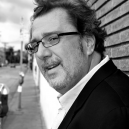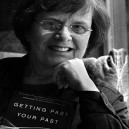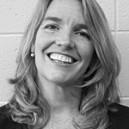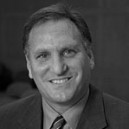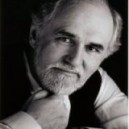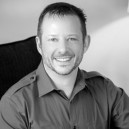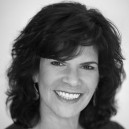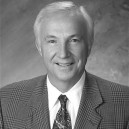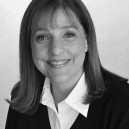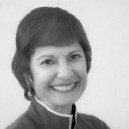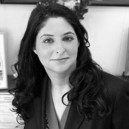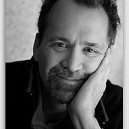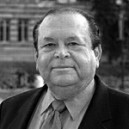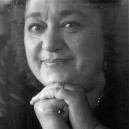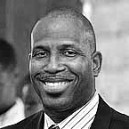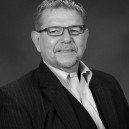Dr. Gretchen Kubacky
Health Psychologist
Dr. Gretchen Kubacky is a health psychologist with a master’s degree and a doctoral degree in clinical psychology from Ryokan College in Los Angeles.
She specializes in helping people move out of deep pain and depression and into a happier life and has more than 20 years of experience in the field. In addition to multiple internships with psychologists, Dr. Kubacky has also worked as a bereavement counselor, suicide support counselor, and a therapist for adoptive and foster care families.
Since 2008, Dr. Kubacky has run a private practice where she takes a holistic approach to treating individuals and couples with a wide-range of issues. She is a constant presence in the media, giving interviews for television networks and print publications alike and she maintains a relatively active blog at her website.
What was your Journey to becoming a health psychologist? What was it about this form of psychology that made it a good fit for you?
Becoming a health psychologist is a mid-life career change for me. I had spent many years in business, but found it unfulfilling, so I returned to school in my 30s. At first, I thought I would just get my MA, and become a Marriage and Family Therapist. I quickly realized I wanted and needed more knowledge. I got a Psy.D. in Clinical Psychology. My first internship was at a cancer support community, where we provided psycho-social support for cancer patients. I had always had a keen interest in medical things, but no real desire to become a medical doctor. That internship led to more study and practice in chronic illness. My own health history played into it as well. I had been dealing with a chronic illness and infertility and saw how impactful treatment was, and how unsupported emotionally. I became a specialist in infertility, which led to a focus on endocrine and gynecological disorders, including Polycystic Ovary Syndrome, diabetes, thyroid cancers, and other chronic and invisible illnesses, such as MS, lupus, fibromyalgia, and chronic Lyme disease. I was wanting information about how to not just survive an illness, but how to thrive with chronic illness. Health psychology allows me to continue learning about medical disorders as well as putting into practice my mental health training, so it’s the perfect fit for me.
What was the schooling like? Can you describe the areas of focus in healthcare psychology? Areas that were difficult and areas that you enjoyed?
My schooling involved four non-stop years of M.A. and Psy.D. training in Clinical Psychology, with an emphasis on skillful client care. My dissertation was on the topic of chronic illness as a manifestation of unresolved childhood trauma. Health psychologists in general practice in many different areas – oncology, gerontology, sexual functioning, and diabetes are a few of the specialties I’ve seen.
What I found most difficult in my studies was the research design and statistical analysis, because my focus has always been so strongly clinical.
How long have you had your own practice?
I’ve had a private practice since 2006.
What were some of the difficulties that you encountered when opening your own practice?
My difficulties included finding appropriate space, good consultation and supervision, and attracting clients. I was also trying to build a practice during the recent severe recession, which slowed things down considerably.
Do you have any pointers for new psychologists on best practices for starting their own business or practice? Marketing? Getting clients? Dealing with start up costs?
Find out what’s required to run a business in your jurisdiction, like a business license from the City. Don’t take on too much office space too soon. Make sure you have adequate insurance. Keep your start-up costs to a minimum by sharing office space, using a cell phone instead of a land line, and getting an e-fax line. Get inexpensive business cards to start, and hand them out in volume – you can get fancier marketing materials later. Make sure you have a clean, simple website that includes a friendly-looking photograph of yourself. Don’t oversell your academic qualifications – potential clients just want to know that you’re going to help them feel better. Having a “day job” (in or out of mental health) will help decrease the stress and pressure to build a private practice quickly; you may have these clients for years, so you want to be sure that you’re a good fit with them, and you actually like them. If you work with elders, get on Medicare. If you want to attract younger clients, make sure you’re on the Psychology Today website. Don’t be afraid to talk to more established therapists to find out what works for them.
Can you give us an average 9-5 day of work in your career?
On a typical day, I engage in self-care first. Meditation, exercise, and a healthy breakfast are important to me. Then I might make a couple of phone calls to client’s physicians or insurance companies, read up on relevant listservs, and meet with a colleague for a coffee date, or with my peer consultation group. Then I might see two clients, have a lunch break for half an hour where I check messages, and see four or five clients. I try to work late only one night per week.
What are some of the things you like best about your job?
I love my clients; they’re amazing. I like getting to dabble in the medical world without having gone to medical school. I enjoy teaching people about self-care. I like running my own practice. I really enjoy serving on the Board of the Los Angeles County Psychological Association, and running its Health Psychology Committee. I like training psychological assistants. I love being able to set my schedule in a way that suits me best (I’m not a morning person, so I rarely see anyone before 9:30 a.m.).
Do you have a case that you enjoyed during your career so far that inspired you, and if so can you share?
“Joan,” a 62 year old married woman, came in due to the recent death of her mother. She was feeling sad, listless, demotivated – and was gaining weight like crazy. She was drinking too much, and her work was negatively affected by all of this. I strongly suspected that, in addition to Major Depressive Disorder, Joan was suffering from Type II diabetes, hypothyroidism, and sleep apnea. I referred her to an endocrinologist who concurred on all of her medical diagnoses, placed her on appropriate medications, and, within weeks, as the anti-depressants and thyroid medical kicked in, Joan began exercising and losing weight. She lost over 100 pounds, and all of her lab work is perfect. She’s still battling the depression, but, with the medical issues under control, we’re able to focus more effectively on the emotional issues contributing to her depression. I’m so proud of her progress and commitment to becoming well.
For someone interested in becoming a health psychologist, do you have any words of wisdom?
Get as much diverse training as you can, because you never know who might come to see you next. The more you know, the more helpful you can be. And build up a good network of physicians and other health care practitioners so that you have people to refer to – people that you trust, and who can handle emotionally fragile or medically traumatized client’s needs.
To learn More about Dr. Kubacky follow her on Twitter at @askdrgretchen.













